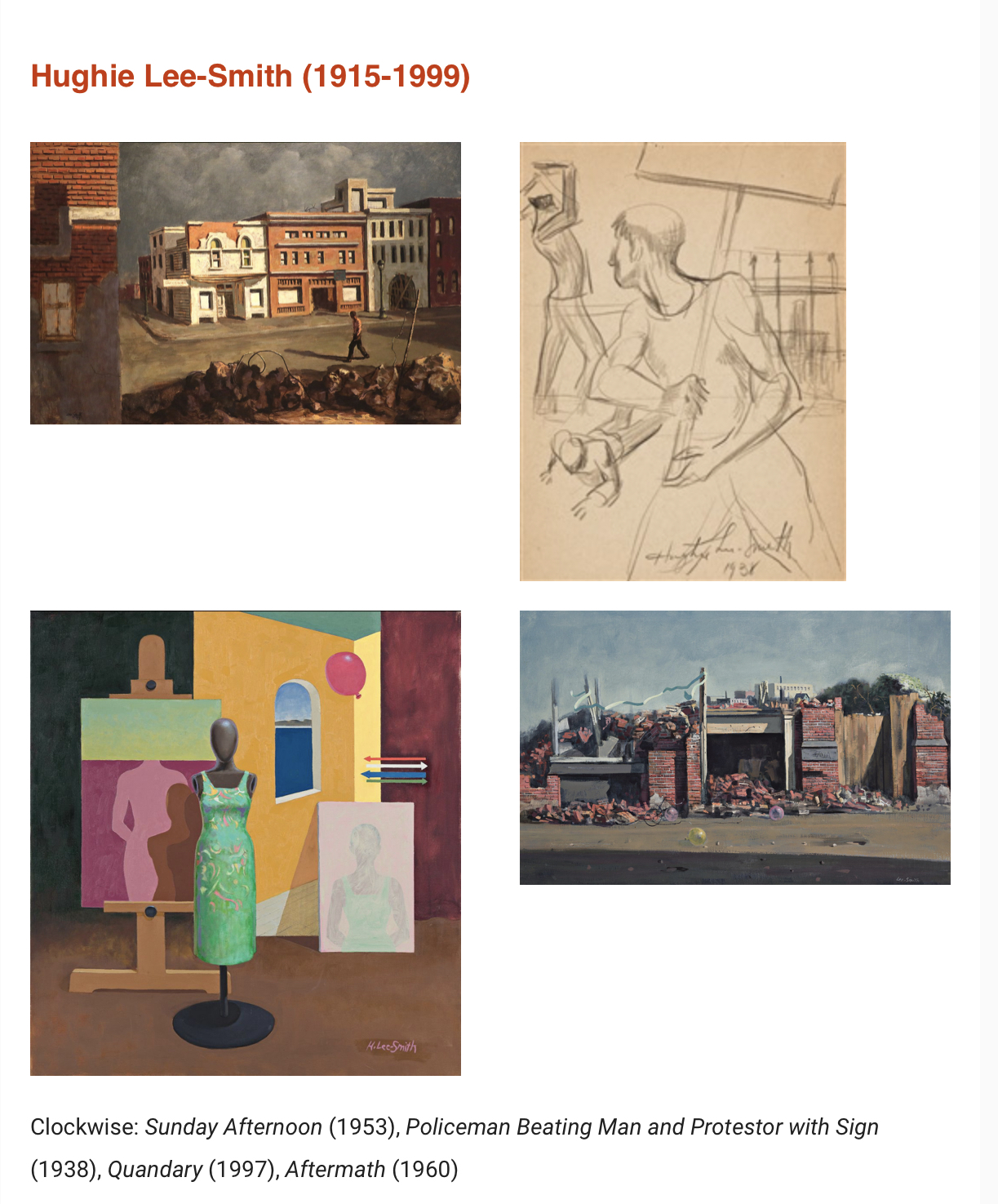Many years ago, when the internet was far less corporate, a group of readers curated a reading list of the pieces they found most worth their time. It eventually became a regular feature at TNI, and it is in that same spirit of sharing motivated purely out of a desire to connect over some common impulse, interest, or learning, that we’d like to introduce the latest iteration of Sunday Reading––a biweekly newsletter from the editors at TNI. Consider it a dispatch from our open tabs. We invite you to read with us: editors Ayesha, Charlie, and Anna.
My thanks goes to the original Sunday Reading curators (2011-2017), for lending their name to what we hope will be a similarly enriching endeavor: Aaron Bady, Queen Arsem-O'Malley, Kerim Friedman, Jacob Remes, Elizabeth Angell, bint battuta, Frank A Pasquale, Aishwarya Subramanian, Reclaim UC, Javier Arbona, Sridala Swami, Gerry Canavan, Kawthar Muhaib, Karen Gregory, Nathan Deuel, Jacqui Shine, Jane Hu, Mark Healey, Linda Rodriguez, T.F. Charlton, L.E. Long.
- Ayesha

How to blow $85 million in 11 months: The inside story of Airlift’s crash
This piece is well-reported and features every startup culture cliche: aggressive growth pursued at the cost of sound business practices, employees left in the lurch, office spaces well-stocked with snacks and furnished with bean bag chairs. What’s unique is that this all occurred in Pakistan. The extent to which this grocery delivery “disrupter” reproduced the deeply flawed models of Silicon Valley demonstrate how venture capital culture trained a generation of people to build and fund apps, not sustainable businesses––and then marry those apps to industries a lot more complex than a few layers of code can speak to. It’s an arrogance that has made much of modern life considerably more precarious (gig economy) and less safe (Google “AirBnB murder settlements”) and wasteful without accountability (as is the case of the warehouses featured here). This story contains the same lessons American companies have been rewarded for not learning. As high interest rates conclude the era of chasing unicorns in the States, I don’t think the rest of the world will be easily freed from the ongoing fall out of what Silicon Valley once was.
This was the story that introduced me to Rest of World, a publication at the forefront of the global fall out of big tech. In the twilight of the tech boom in the States, global coverage of the tech industry is increasingly important, as many of the harms of those companies are being offloaded onto the global south. More recently, Rest of World covered the collapse of crypto in Africa and how reliance on AI translation is impacting the immigration process with devastating consequences for Afghan refugees. The way the asylum process has been left vulnerable to for profit government contractors is already having severe consequences on migrants, a reality anticipated by Harsha Walia and I in our conversation on post-Covid border security privatization. - Ayesha
Cunny4, or Bunny Rogers's poetry Tumblr
In 2014––the same year Lana del Rey released Ultraviolence––poet and artist Bunny Rogers published two volumes of poetry: My Apologies Accepted, and Cunny Poem Vol. 1. These books, like Lana’s music, reflect cascading American death drives at American Empire’s dusk: school shooters, pedophiles, strung-out patriarchs. “I know you would never hurt me intentionally / I know because its me. im the one who said it.” Against the backdrop of ambient murder are the places we go to escape. For child Bunny, that was the internet, especially neopets. In Mandy’s Piano Solo in Columbine Cafeteria (2016), the titular cafeteria is empty––except for a grand piano. Snow falls from the inside. Suddenly, a teenage girl, 3D-animated, walks out, holding a goblet of wine. The girl is Mandy, a character from Clone High, a 2002 show set in “the fictional town of Exclamation, USA, that is secretly being run as an elaborate military experiment” (Wiki). Mandy starts playing Elliot Smith covers as wine stains the snow.
When covid began, Bunny quit the internet. She began dancing ballet again, something she hadn’t done since childhood. America is dying still, but now Bunny is trying to live; her most recent poems, which she still posts on tumblr, reflect this split. “Live and wave / goodbye.” - Charlie
"Your Sick Friend" by Casey Wait
We know that America has “returned to normal” while covid rages, and that this “normal” is in fact impossible for immunocompromised people. But accounts of living through covid non- “normally” are usually downratioed by corporate media platforms, which frame anyone who masks as a hysteric. Within this context, “Your Sick Friend,” Casey Wait’s monthly column for The Montague Reporter, their local paper, is a bracing reprieve. Wait describes the way disability impacted their life even before the pandemic hit. “At 30 years old, I need a cane or walker to get around in the world…I am an artist who can no longer draw because of the pain in my hands. And I have a wonderful life. Not despite all of this, but amongst it and because of it.”
Each entry features one of Wait’s original columns (which began in February 2022), a reflection on the column from Wait, and pandemic context from Beatrice Adler-Bolton who hosts the column on her newsletter, Blind Archive. The posts also feature some of Wait’s original drawings and image descriptions, which read like koanic precises written from what Lauren Berlant called “the crisis ordinary.” Here’s one: “Black and white drawing of a flower person in black opera gloves and go-go boots reclining on a squishy tasseled pillow. The words ‘your sick friend’ are arranged around their body. The corners are framed with pills, a pill bottle, and flowers with happy and sad faces. - Charlie

From what I can tell, the most common response to Hughie Lee-Smith’s work is to compare him to the iconic Edward Hopper, who also documented 20th century scenes of alienation. But this comparison does Lee-Smith’s breadth of work a disservice. Lee-Smith’s art spans from the muted realism of Sunday Afternoon (1953) to the explicit violence and motion of his sketch Policeman Beating Man and Protestor with Sign (1938) to the surrealist touch of Quandary(1997). Through decades of experimentation, Lee-Smith portrayed the distinct shape of Black alienation, especially through his scenes of disinvestment. There are no people in Aftermath (1960), but the racism of “urban renewal” looms large through the crumbling buildings and abandoned lots that populate many American cities. The vast skies of Lee-Smith’s works create an air of quiet that can feel like calm or anxiety; in the end, it depends where you’re looking up from. - Anna

This fall, the Kennedy Center will be home to “Grounded” an opera about a female drone operator, sponsored by the weapons manufacturer General Dynamics. Showcasing the limits of the American imagination, the promotional listing for the show asks: “Mother. Soldier. What if both are at war?”

Did you know forced psychiatric stays are on the rise? This is concurrent with a shortage of available beds. In The Baffler, Jess McAllen covers the psychiatric care crisis in depth.

This 2016 essay from Pat Blanchfield both captures a specific moment in time, and feels as if it could be written yesterday. Pat’s clear-eyed assessment of American gun chauvinism rings true as the fever pitch of gun control discourse continues, (thanks, in part, to American myopia). In the context of the Mexican government’s lawsuit against American gun manufacturers, we are forced to confront some of the realities Pat grapples with in this excellent essay. -Anna
A bit more from Pat, here, as a new introduction to the piece:
Materially speaking, the flow of guns southward––and of assault rifles in particular––has continued apace, as has the disproportionate representation of US-made guns in Mexican gun violence. In 2018, for example, some 70% of guns recovered at crime scenes in Mexico were traced back to the US; this and other data points has led experts to credibly put the number of US smuggled into Mexico at 2.5 million for the period of 2010-2020. The US government also continues to send hundreds of millions dollars in small arms to Mexican security forces, with a nontrivial number of these guns winding up in cartel hands––or used by state agents who are in their pocket. Meanwhile, and alongside these material dimensions, the ideological landscape stateside remains split and narcissistic, as American Exceptionalism demands. Republicans, both in the Trump camp and outside it, have ludicrously called for deploying the US military to bomb cartels and even go full-boots-on the ground. They say such a campaign would be easy, apparently indifferent to the fact that, for all the US’s military’s impressive strength, such intervention would see US forces arrayed against richly resourced combatants armed with US hardware, and with plenty of US-based sources willing to sell to them. Meanwhile, Democrats have rallied around the leadership of Joe Biden, the man who brought America its first Assault Weapons Ban (and accompanying enormous investment in political mass incarceration); and while calls for yet more such legislation will likely prove fruitless, their efforts to further arm US police with such “weapons of war” have been successful and only intensified. In one of the few examples of bipartisan cooperation in recent memory, an overwhelming number of Democrats joined with Republicans to approve a record national defense authorization of over one trillion dollars.In other words, our elites want to have their cake and eat it too, whether it be by being Too Developed For and Better Than This Kind of Violence while writing arms manufacturers giant checks and accepting their campaign donations, or by about the supposed capacity of the US military to quell civil violence abroad as though this were easy and could come without blowback. Material incentives and ideological narratives reinforce one another, our two parties operate in an apparently endless repetition of mutually advantageous polemics, and, the entire time, the arms flow. Whether the courts will be prevailed to reverse the dismissal of the Mexican government’s case against US arms manufacturers is uncertain, but the challenge that case represents goes to the heart of the matter, challenging both the pieties of American exceptionalism and the unspoken consensus that the flow of arms must continue. Your weapons of war are on our streets, it effectively suggests, and now we are in your courts, to see whether and how much you can tolerate reflecting on this ugly fact.
